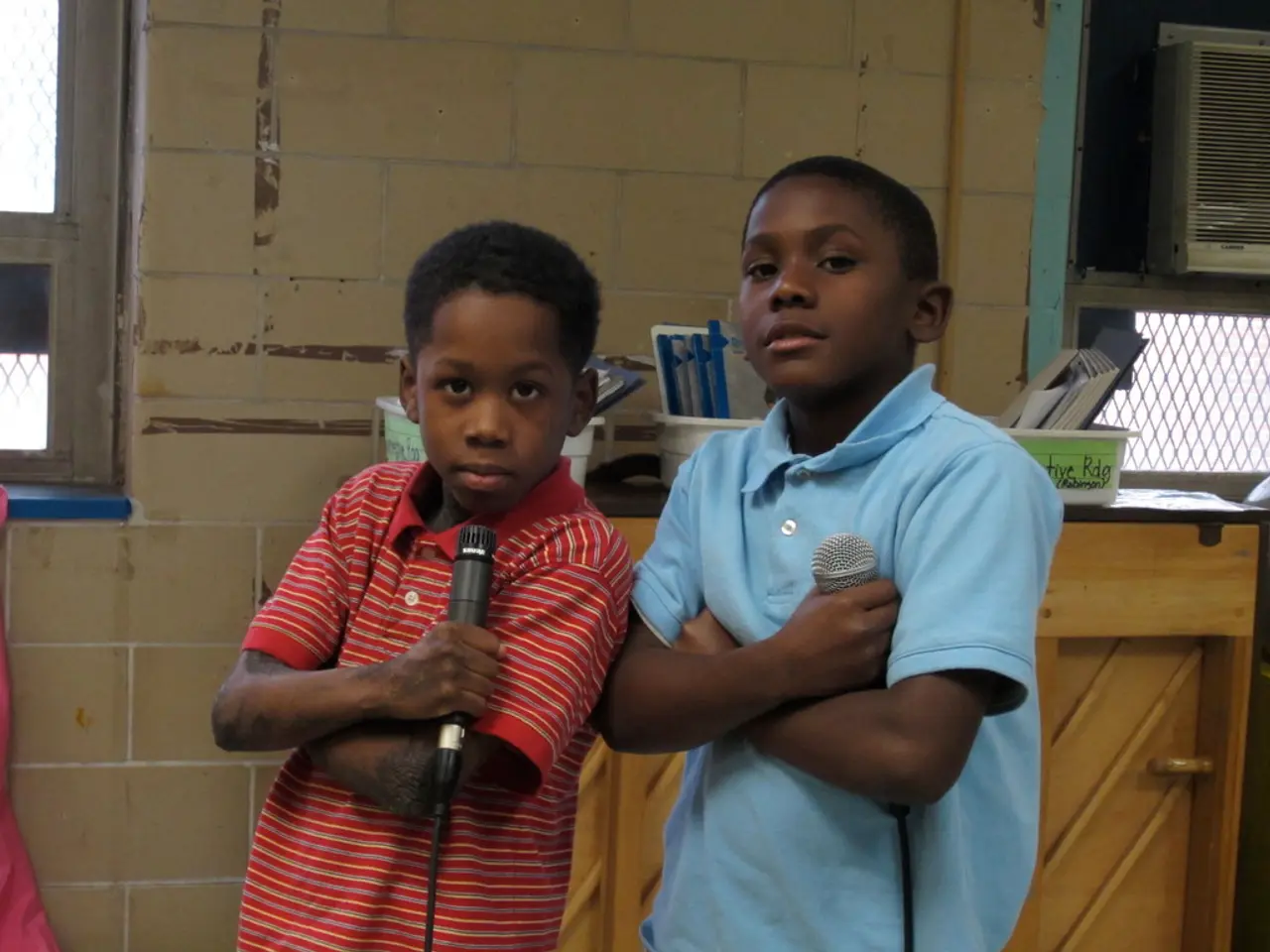Are educational flashcards a smart pedagogical resource, or are they secretly a form of covert digital parenting?
Talking Flashcards: A Helpful Tool for Early Learning
Talking flashcards, small devices with sensors and a speaker, have become a popular choice among parents seeking educational tools for toddlers and preschoolers. These interactive learning aids cover a variety of topics, from letters and numbers to animals, making them an appealing option for early childhood education.
While talking flashcards offer a convenient way for young learners to practice independently at home, it's essential to consider their impact on a child's cognitive development. Overreliance on these devices may discourage curiosity and critical thinking, as they often involve passive engagement and may not foster sustained attention or problem-solving.
However, these flashcards do have their advantages. They pair audio components with visual prompts to support early learning without screens, providing young learners with more pathways to absorb language and foundational concepts. Some sets even include multilingual audio, sound effects, or interactive elements like quizzes, adding an element of fun to the learning process.
Moreover, talking flashcards can be adjusted to suit different settings and attention spans, with options to alter volume or playback speed. This adaptability makes them a versatile tool for various learning environments.
When choosing talking flashcards, it's crucial to evaluate their content based on a child's age and stage of development. Cards with clear audio, steady pacing, and simple design help keep young learners focused. A child's interest or repetition of phrases indicates engagement with the material, while boredom or distraction may signal a need for other activities.
It's also important to remember that talking flashcards should be used as a supplement to meaningful interaction. Unsupervised use for long periods can limit interactive communication and thinking skills development. Balancing use of talking flashcards with reading aloud, storytelling, or pretend play helps support early learning while focusing on connection, not just content.
Consulting a pediatrician or educator can guide individual developmental needs when choosing talking flashcards. These professionals can provide valuable insights into a child's learning style and help select the most appropriate set of talking flashcards to foster a strong foundation for future learning.
In conclusion, talking flashcards can be a valuable addition to a child's early learning experience, offering gentle tech exposure that holds attention, encourages independent play, and offers quiet, focused learning. However, it's essential to use them thoughtfully and balance their use with other interactive learning activities to ensure a well-rounded educational experience.
Read also:
- CEO Efe Cakarel of film platform Mubi addresses controversy regarding new investor and Israeli military ties, establishes advisory board and fund to safeguard artists under threat.
- Magnesium-Rich Beverages: Origins, Advantages, and Potential Hazards
- Deteriorating munitions are submerged in the Baltic Sea, and Germany aims to retrieve them before it's too late.
- "Family asserts that defective insulation led to a major mold outbreak"





